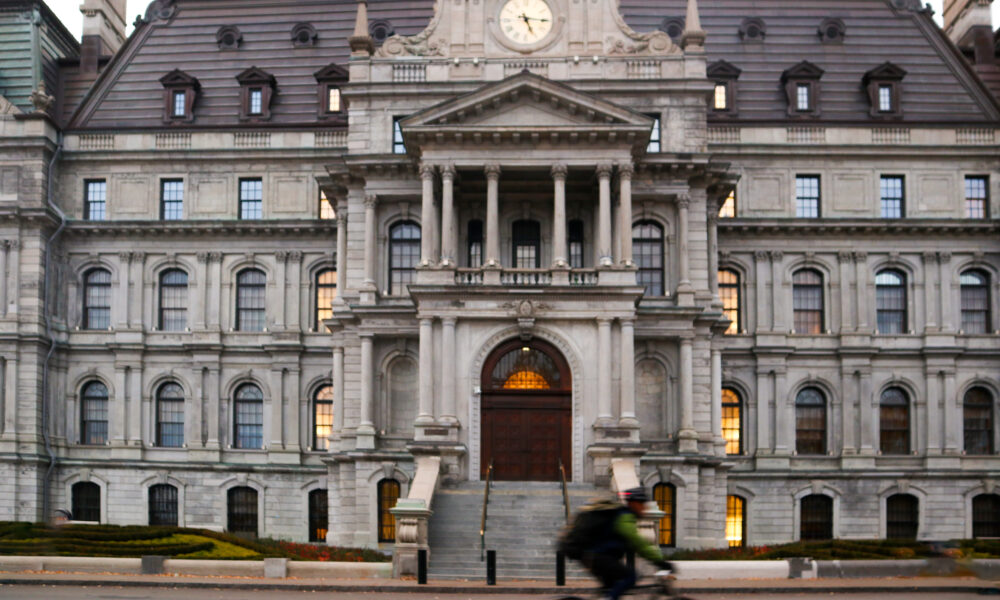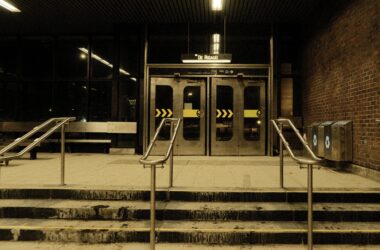On Nov. 2, Quebec will hold municipal elections—though in 87 cities throughout the province, the results of these elections are already decided. In the 2025 Quebec municipal election cycle, over 4,500 municipal candidates ran unopposed. In a process known as acclamation, candidates who are running unopposed bypass the election cycle and are automatically awarded the title. One of these constituencies is Terrebonne, a city of more than 120,000 residents. If Canada wants to maintain its democratic capacity at all three levels of government, then federal leaders need to treat municipal government with equal importance as they do provincial and federal governments
If nobody is running against incumbents, maybe constituents are simply happy with their current municipal leaders. That is what Terrebonne mayor Mathieu Traversy believes, and in his case, it might even be true. Traversy is a well-liked mayor and has a diversity of political viewpoints in his government. Nonetheless, he still ought to have an opponent for the sake of democracy.
It is abnormal for a city the size of Terrebonne to have zero competition in a mayoral race. In 2021, three candidates ran for mayor, and four candidates ran in 2017. The lack of competition for Mayor Traversy is a sign of political apathy and a weakening of local democracy. In a representative democracy, the primary way for citizens to influence policy is through elections. Without elections, representative democracy fails to give its citizens a voice. Without a civic voice, democracy does not exist. In Terrebonne, there is no election, and consequently, no democracy.
While uncontested elections are concerning in cities like Terrebonne, they become even more troubling in small towns where municipal government roles are often thankless jobs. Faced with mounting tasks, these mayors often get lambasted on social media for minor problems that they have little power to fix. Yet, election by acclamation is most common in these districts. Of smaller municipalities in Quebec, almost a quarter of districts with less than 2,000 people elected an all-incumbent council this cycle. Normand Marin, former mayor of Pointe-Lebel in the Côte-Nord region, describes rural mayoralty as an impossible task because mayors of small towns tend to be overworked and criticized heavily on social media. The meagre salary makes the job even less desirable.
With immense censure and low salaries, it is no mystery why there are so few candidates for municipal politics. In the Chaudières-Appalaches region, four municipalities—Sainte-Cyrille-de-Lessard, Saint-Benjamin, Lac-Frontière, and Saint-Phillibert—currently have no mayoral candidates. Yet a robust democracy, especially at the municipal level where every vote counts, is reliant upon competition. The question, then, is how to make small-town leadership sustainable and appealing to would-be political candidates.
One potential solution for some of these smaller municipalities could be to merge with neighbouring towns. A municipality such as Saint-Phillibert, which is closer to larger towns, could easily be added to the municipality of either Saint-Prosper or Saint-Georges. Declining local autonomy would be a necessary trade-off, as Saint-Georges has almost 33,000 people and a budget to match. Many of the administrative duties of a mayor could be absorbed by a larger, better-resourced municipal administration.
However, municipal mergers are not viable for every community. If Lac-Frontière merged with its neighbouring municipality, Sainte-Lucie-de-Beauregard, the new territory would span over 130 square kilometres with a combined population of just 450 constituents. Merging such remote, sparsely populated areas would only intensify logistical challenges, as servicing a large, spread-out region is far more difficult than managing a compact community. Combining two municipalities of such a small size would only exacerbate the problems that sparsely populated municipalities already face.
Although merging municipalities represents a compelling potential solution to the crisis of Quebec’s uncompetitive municipal elections, the deeper issue is that local governments are chronically underfunded and understaffed. Government programs to mobilize capable university graduates into voting in municipal elections could offer a means to improve the province’s democratic capacity.
The provincial government cannot force people to run for office, but it can make running for office more appealing. A first step would be to properly fund and staff rural communities by bringing municipal government to parity with the provincial and federal levels.









